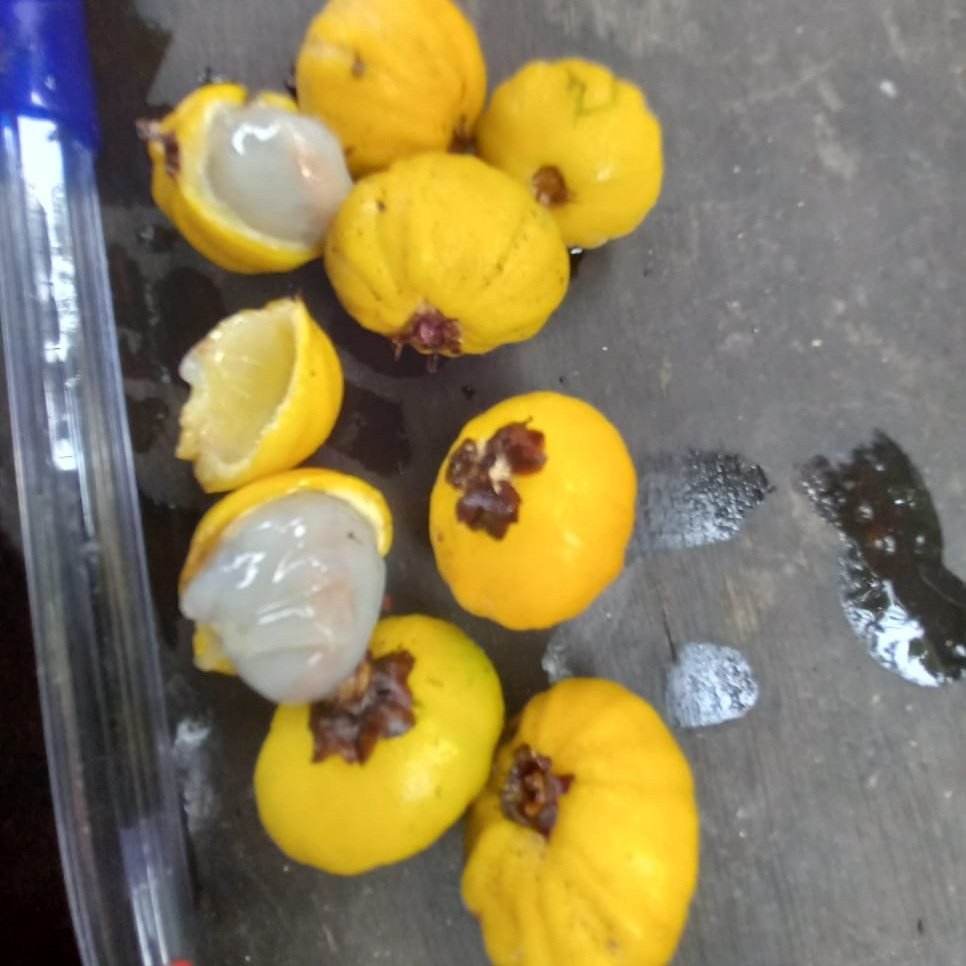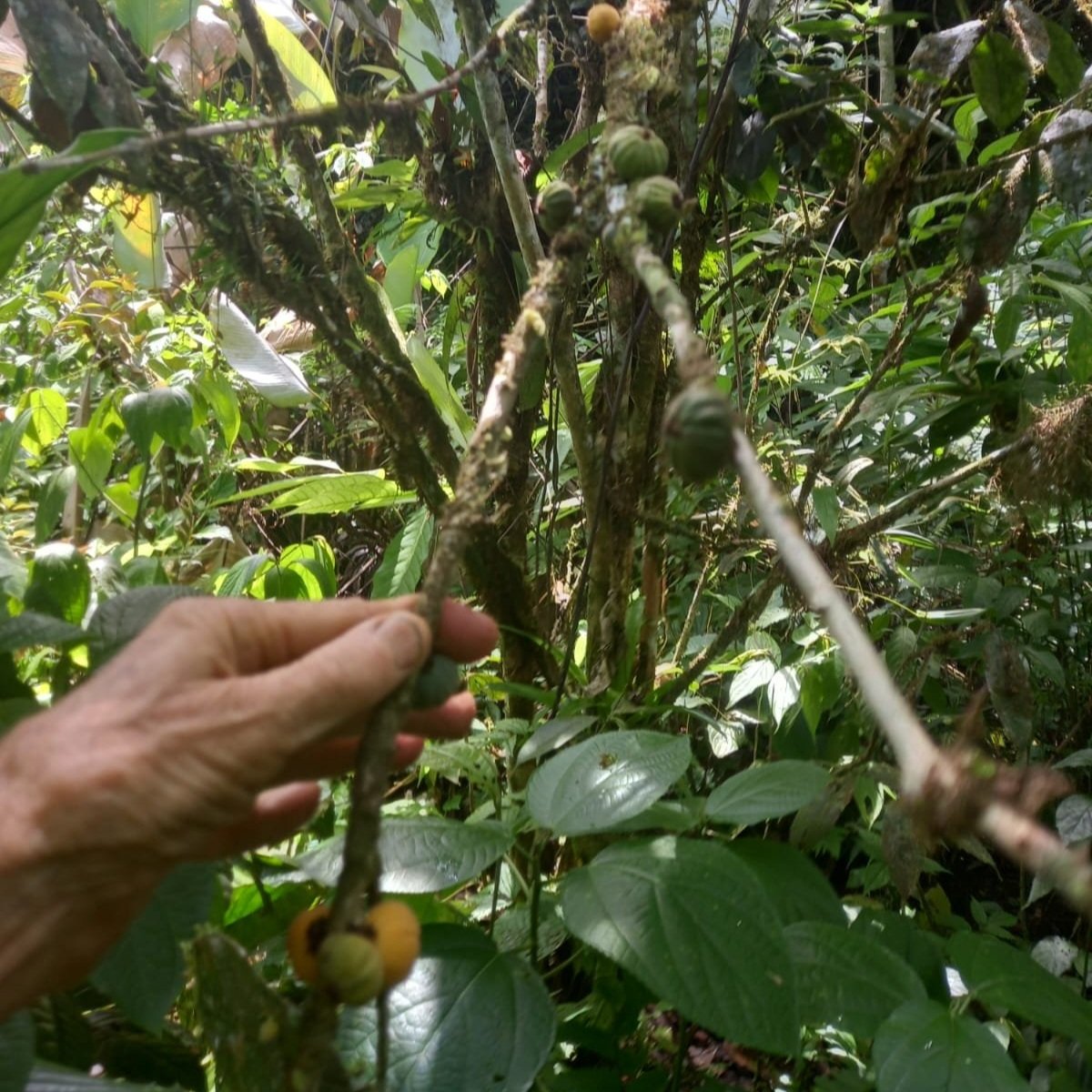 Image 1 of 3
Image 1 of 3

 Image 2 of 3
Image 2 of 3

 Image 3 of 3
Image 3 of 3




Plinia sp. "Ecuador"
Seeds were imported from Ecuador. This is believed to be a newly discovered species identified by Jim, and it bears a resemblance to some of the unique Plinia species native to the region, such as Mulchi or salicola. The tree produces small, bright yellow, ribbed fruits filled with abundant, juicy white flesh. The flavor is reported to be pleasant and similar to Myrciaria glazioviana, which is loved for its taste but often critiqued for having very little flesh. This new fruit may offer a solution—delivering that same sweet, tropical flavor with significantly more pulp. Notably, its seeds are much smaller than any other Plinia species I've sourced from Ecuador, suggesting it could indeed be a distinct and previously undocumented species. It should be a good species for container growers as well. If you are wanting to plant it in the ground, It thrives in warm, humid environments similar to USDA hardiness zones 10–12, where temperatures stay above freezing and humidity remains high.
Seeds are sold in 1 seed packs. Seeds are shipped in humid vermiculite.
Seeds were imported from Ecuador. This is believed to be a newly discovered species identified by Jim, and it bears a resemblance to some of the unique Plinia species native to the region, such as Mulchi or salicola. The tree produces small, bright yellow, ribbed fruits filled with abundant, juicy white flesh. The flavor is reported to be pleasant and similar to Myrciaria glazioviana, which is loved for its taste but often critiqued for having very little flesh. This new fruit may offer a solution—delivering that same sweet, tropical flavor with significantly more pulp. Notably, its seeds are much smaller than any other Plinia species I've sourced from Ecuador, suggesting it could indeed be a distinct and previously undocumented species. It should be a good species for container growers as well. If you are wanting to plant it in the ground, It thrives in warm, humid environments similar to USDA hardiness zones 10–12, where temperatures stay above freezing and humidity remains high.
Seeds are sold in 1 seed packs. Seeds are shipped in humid vermiculite.

